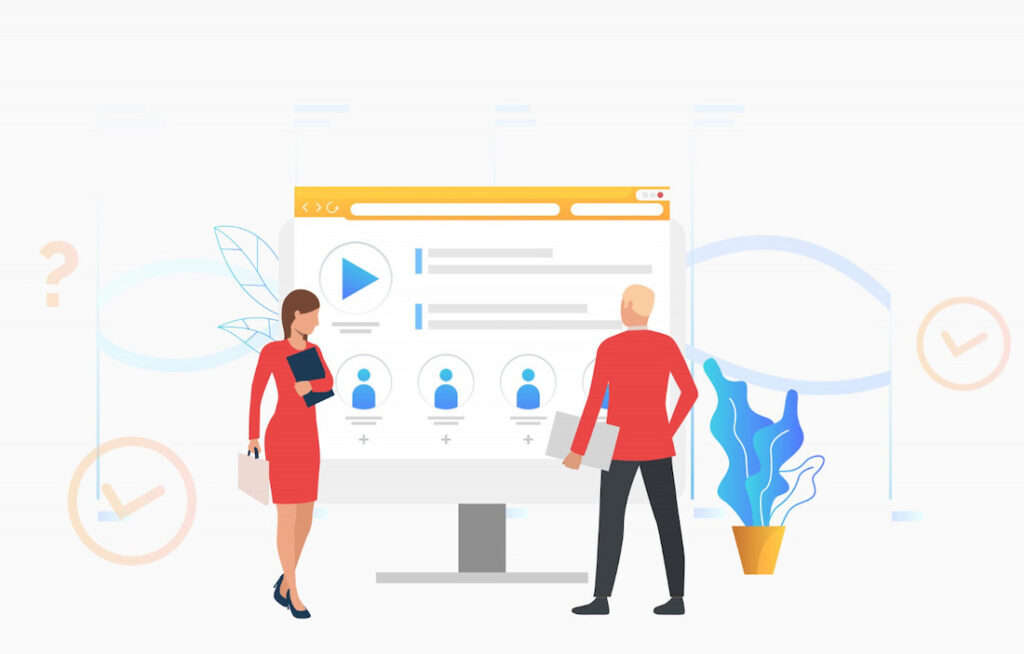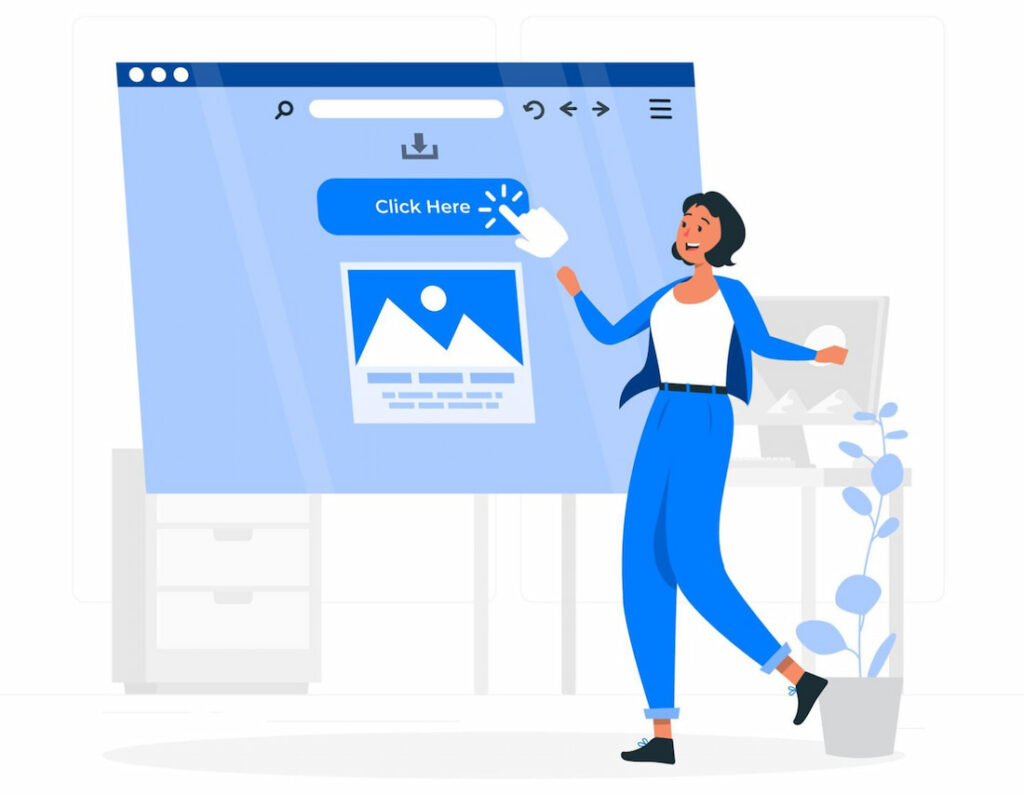The debate between the landing page vs detail page is quite confusing. Even businesses also struggle to make a choice between these two while designing a website. If you make the wrong decision, it might have a negative impact on your site’s conversion rate, sales, and overall success.
That said, let’s explore the major differences between a landing page vs a detail page and some other information to help you make an informed decision!
The Role of Web Pages
Many people might not know, but the web pages are one of the most important elements of a website. It has the potential to determine your site’s credibility, brand’s professionalism, and online presence. And ignoring their importance is like ruining all your efforts to build an online appearance.

The Importance of Understanding Landing and Detail Pages
In this digital era, using different types of web pages strategically is absolutely crucial. Among them, the landing page and detail page are some of the most commonly used web pages.
During the website design phase, you will face the question: “landing page vs. detail page: which one to choose?” However, as mentioned, a wrong choice might lead to a negative impact. Hence, you will need to understand these two web pages thoroughly in order to make a decision that reflects your business needs and priorities.
Defining Landing Pages
Let’s explore all about landing pages, including their unique characteristics and key elements.
What is a Landing Page?
To be precise, a landing page is a simple, minimal, and standalone page that’s designed to fulfil a specific goal. Mainly, this goal involves convincing the consumer to take any action, such as purchasing a product, signing up for a newsletter, etc.

Characteristics and Purpose
The primary purpose of a landing page is to attract traffic and convert leads into sales. In fact, businesses are also using them in marketing, advertising, and lead-generation campaigns.
The key characteristics of a landing page include:
- Simple design: Often, landing pages are designed with a clean and minimal theme. That’s because clear visuals help reduce distractions and prompt users to take action.
- Goal-Oriented: Landing pages have a clear goal: to get a lot of conversations.
- Tailored Content and Design: Generally, landing pages are tailored to a particular audience. This personalization might be reflected in the use of specific keywords.
Primary Functions in Digital Marketing
The primary function of landing pages in digital marketing includes:
- Lead Generation: These standalone pages help organizations in capturing profitable leads.
- Sales Conversion: While it’s the primary purpose, this function also comes under the domain of digital marketing.
- Brand Awareness and Reach: Landing pages extend brand awareness and reach, thanks to their personalized theme reflecting the brand’s message clearly.
- Marketing Campaign Support: For marketing campaigns, businesses need a target destination. The visitors from email campaigns, social media ads, and PPC campaigns can reach that destination, which is known as a ‘landing page’.
Key Elements of a Typical Landing Page
Here are a few key elements of a typical landing page:
- Headline and Subheadline: These are basically headers that capture the audience’s attention immediately once they reach your website. They convey the main message behind your brand’s presence (example: Discover the power of our all-natural health supplement).
- Call-to-Action (CTA): Usually, landing page call-to-action is present in the form of a button that prompts the user to take a specific action. For example, Claim Your Free Trial Now.
- Forms and Data Capture: These elements gather visitor information such as name and email address. This data is crucial for conversion.
- Minimal Navigation: As mentioned, the theme and navigation of a landing page are kept to be simple. It means you don’t have to juggle with multiple pages; there’s a single page with all pricing available.
Understanding Detail Pages
Now let’s understand what detail pages are, their characteristics, and varieties.
Simply put, a detail page is an information-rich web page that’s designed to tell the user about a specific topic, product, or service. Contrary to a landing page, these pages aim to provide comprehensive information to the visitor so they can understand a business’s offerings clearly.
Varieties of Detail Pages (e.g., Blog Posts, Product Pages)
Detail pages exist in a variety of formats. This might include:
- Product Detail Pages: Product detail pages provide details about a particular product, including its specifications, images, and pricing.
- Educational or Tutorial Pages: These pages usually include comprehensive instructions, how-to guides, and educational content on a specific niche.
- Blog Posts: Blog These articles aim to attract an audience by offering relevant information that people are looking for.
- Case Studies or Reports: If we consider a company website offering a specific service, then there may be a case studies page showcasing the successful collaboration of the brand with its clients.

Comprehensive Information and Context
Detail pages, irrespective of their form, contain in-depth content to provide a complete understanding of the topic. For attractiveness, these web pages make use of multimedia content – high-quality images, videos, charts, and infographics.
Moreover, detail pages provide what, why and how about a topic, service or product. This could mean explaining the background of a product, the theory behind a certain concept, or the methodology of a case study.
Elements That Make a Detail Page
Let’s have a look at the major elements of a detail page:
- Extensive Content: Of course, it’s the first yet compulsory element of detail pages. As mentioned, extensive content helps users understand all about website offerings.
- Multimedia Integration: Since extensive content can make visitors uninterested, appealing visuals are essential to keep them engaged.
- In-Depth Navigation: Given the extensive nature of the content on detail pages, there must be in-depth navigation as well. This helps users easily find and access the information they need without feeling overwhelmed.
Key Differences Between Landing and Detail Pages
Here are a few key differences between landing and detail pages:

1. Objective and Audience Targeting
a. Conversion Focus vs. Information Dissemination
Landing Pages: Landing pages have a singular focus: convert visitors into leads. Optimized for conversions, they feature a big CTA button and minimum distractions.
Detail Pages: On the other side, detail pages are a source of information. Here, users are educated and engaged with valuable information instead of being prompted to take action.
b. Specific Target Audience vs. General Readers
Landing Pages: Generally, a landing page website offers services in a specific niche. For instance, Airbnb works in the domain of tourism. Hence, it’s safe to say that landing pages are tailored to a specific target audience.
Detail Pages: Meanwhile, detail pages might include several blogs and products, which are ideal for general readers. For example, a blogging site can contain several niche blogs like tourism, health, real estate, etc.
2. Content Length and Depth
a. Concise vs. In-Depth Information
Landing Pages: The landing page aims to convey a message in clear yet concise information. This information is mainly represented by tables, headers, etc., which highlight key selling points, benefits, and value propositions.
Detail Pages: They provide a comprehensive understanding of various topics, services, or products to satisfy the curiosity of information-seeking users.

b. Minimal Navigation vs. Extensive Links
Landing Pages: With minimal navigation, these pages keep visitors focused on the main CTA. This is essential to convert new visitors into customers.
Detail Pages: Contrarily, detail pages have extensive links, references, and navigation menus. As a result, this interface facilitates user exploration.
When to Use Landing Pages and Detail Pages?
After exploring the comparison between landing pages vs. detail pages, it’s clear that both web pages have their distinctive set of advantages and use cases. You must opt for one after carefully evaluating the needs of your business.
Refer to the following link for an in-depth analysis of a successful landing page example.
Still uncertain about making a decision between landing pages and detail pages? Don’t worry; to help you make a smart decision, here are a few scenarios:
Scenarios for Landing Page Deployment
If you’re faced with one of the following scenarios, then go for landing pages: Doordash’s $41M / Month Landing Page Review | @Ahrefs
- Product Launches and Lead Generation: When you need to introduce a product and gain buyers, then landing pages are perfect. This is because they prompt visitors to make a purchase, thanks to persuasive call-to-actions.
- PPC Advertising Campaigns: Similarly, if you’re running pay-per-click (PPC) ads, landing pages are your best bet. Visitors from advertising campaigns can be redirected to this page effectively. And the best part? You can tailor the landing page according to the message of the ad.
Situations Where Detail Pages Shine
Here are a few scenarios where detail pages are a must-make:

- Blogging and Content Marketing: Many people make blogs and informational content to gain revenue from AdSense. In that case, detail pages are more appropriate. These pages are ideal for search engine optimization and attracting a vast audience, thereby generating more profit.
- Product Information and Reviews: Affiliate marketing is common nowadays; this includes prompting users to buy other’s products and gain commission. For this reason, you must mention the beneficial side of the product, its features, and customer reviews. This extensive nature of content requires the use of detail pages.
Conclusion
To wrap up, the decision between a landing page and a detail page hinges on your specific goals and audience needs. Landing pages are ideal for driving specific actions, such as sales or sign-ups, with their focused and straightforward design. Meanwhile, detail pages are indispensable for providing in-depth information, building authority, and enhancing SEO efforts.
All in all, you should choose a webpage based on your business needs and interests. We hope you know how to do so after reading this guide!
FAQs
Are landing pages and detail pages the same as homepages?
No, landing pages and detail pages are not the same as home pages. Homepages are a general introduction to your site, while landing and detail pages have specific purposes.
How can I optimize a landing page for better conversion rates?
Optimize landing pages by ensuring a clear call-to-action, minimizing distractions, using engaging visuals, and creating compelling content that resonates with your target audience.
Can a detail page be used as a landing page?
Yes, a detail page can function as a landing page, especially if it's designed to convert visitors through comprehensive information and a clear call to action.
Do landing pages and detail pages impact SEO differently?
Yes, landing pages and detail pages impact SEO differently. Landing pages often target specific campaigns and keywords, while detail pages provide in-depth content, boosting organic search visibility.
Can I create a single page that combines the features of both?
Yes, you can create a single page combining both features. This hybrid page would clearly focus on conversions, with detail content supporting the call-to-action.
